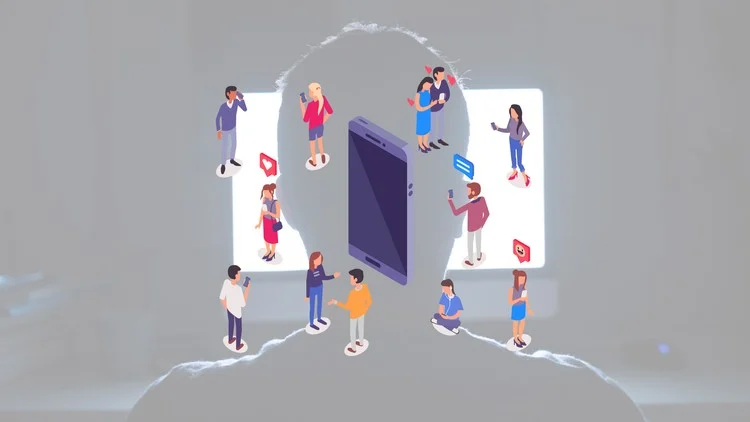Description
Navigate conflicts with confidence and diplomacy through this practical course. You’ll learn effective strategies for resolving interpersonal and professional conflicts, including active listening, emotional regulation, and collaborative problem-solving. The course also covers common causes of conflict, how to address misunderstandings, and techniques to foster mutual understanding and compromise. With role-playing exercises and real-world scenarios, you’ll gain the skills to handle disputes constructively, strengthen relationships, and create positive outcomes. Ideal for professionals, leaders, and anyone looking to improve their communication and negotiation skills.
Syllabus
Course Syllabus:
Module 1: Introduction to Conflict
- Lesson 1: What is Conflict?
- Definition and causes of conflict.
- Understanding the impact of unresolved conflict on individuals and groups.
- Lesson 2: The Types of Conflict
- Interpersonal conflict: Causes and solutions.
- Organizational conflict: Challenges in the workplace.
- Group conflict: Dynamics in teams and groups.
Module 2: The Psychology of Conflict
- Lesson 3: The Role of Emotions in Conflict
- How emotions influence conflict escalation and resolution.
- Identifying emotional triggers and managing them effectively.
- Lesson 4: Perception and Needs in Conflict
- Understanding how differing perceptions and unmet needs contribute to conflict.
- The importance of empathy in resolving conflicts.
Module 3: Conflict Styles and Resolution Strategies
- Lesson 5: Identifying Conflict Styles
- Overview of the five main conflict styles: Avoiding, Accommodating, Competing, Collaborating, and Compromising.
- How to assess your personal conflict style and its impact on resolution.
- Lesson 6: Adapting Conflict Styles for Better Outcomes
- How to choose the most effective conflict resolution style based on the situation.
- Practicing flexibility and adaptability in your approach.
Module 4: Effective Communication in Conflict
- Lesson 7: Active Listening Skills
- Techniques for truly listening and understanding the other party’s perspective.
- The importance of non-verbal cues in communication.
- Lesson 8: Using Constructive Language
- How to frame messages to avoid blame and defensiveness.
- The role of “I” statements in expressing your feelings without accusing others.
- Lesson 9: Empathy in Conflict Resolution
- The power of empathy to de-escalate conflicts and build trust.
- How to acknowledge emotions and validate others’ feelings during a disagreement.
Module 5: De-escalation Techniques
- Lesson 10: How to Calm High-Emotion Situations
- Identifying warning signs of escalating conflict.
- Techniques to remain calm and in control when emotions run high.
- Lesson 11: Managing Difficult Conversations
- How to stay grounded and focused during challenging discussions.
- De-escalation strategies for both face-to-face and virtual conflicts.
Module 6: Mediation Skills for Conflict Resolution
- Lesson 12: The Role of a Mediator
- Understanding the role and responsibilities of a mediator in resolving conflict.
- Key qualities of an effective mediator.
- Lesson 13: Mediation Techniques
- How to facilitate a conflict resolution discussion between two parties.
- Creating a safe and neutral space for both parties to voice concerns.
- Lesson 14: Guiding Parties Toward Agreement
- Helping parties identify common ground and develop mutually acceptable solutions.
- Managing resistance and encouraging collaboration.
Module 7: Negotiation and Problem-Solving
- Lesson 15: Principles of Effective Negotiation
- How to identify interests rather than positions in conflict.
- Techniques for negotiating a win-win solution.
- Lesson 16: Creative Problem-Solving in Conflict
- Strategies for brainstorming and finding solutions that satisfy all parties.
- Overcoming impasse: How to find compromise when no immediate solution is apparent.
Module 8: Managing Conflict in the Workplace
- Lesson 17: Conflict in Teams and Groups
- The impact of conflict on team dynamics and performance.
- How to manage conflicts between colleagues, managers, and subordinates.
- Lesson 18: Professional Conflict Management Techniques
- Approaching workplace conflicts with professionalism and respect.
- Conflict resolution strategies for HR professionals and managers.
- Lesson 19: Preventing Workplace Conflict
- How to create a proactive culture for conflict prevention.
- Developing communication practices that reduce misunderstandings and disagreements.
Module 9: Cultural Sensitivity in Conflict Resolution
- Lesson 20: The Role of Culture in Conflict
- Understanding cultural differences in communication styles and conflict resolution approaches.
- Adapting conflict resolution techniques to be culturally sensitive.
- Lesson 21: Conflict Resolution Across Cultures
- Best practices for resolving conflicts in multicultural environments.
- How to navigate conflicts in global or diverse teams.
Module 10: Practical Application: Real-Life Conflict Scenarios
- Lesson 22: Conflict Resolution Case Studies
- Analyzing real-life conflict resolution examples and identifying key takeaways.
- Group discussions and problem-solving activities based on real-world scenarios.
- Lesson 23: Role-Playing and Simulation Exercises
- Role-playing common conflict situations and applying learned techniques.
- Receiving feedback from peers and instructors on conflict resolution strategies.
Course Delivery Format:
- Video Lessons: Expert-led videos that explain conflict theory, skills, and strategies, with real-life examples.
- Interactive Exercises: Hands-on activities, quizzes, and role-playing scenarios to apply what you learn.
- Case Studies: Review of actual conflict situations and how they were handled, providing practical insights.
- Discussions and Group Work: Collaborative activities where students share experiences, ask questions, and learn from one another.
- Live Webinars (Optional): Opportunities for live Q&A sessions with instructors for personalized feedback.
- Course Materials: Downloadable PDFs, worksheets, and conflict resolution templates for practice and reference.
Course Duration:
- Total Length: 6-8 hours of video content, divided across 10 modules.
- Estimated Completion Time: 4-6 weeks (self-paced, with optional live Q&A sessions).
Prerequisites:
- No prior experience is necessary. This course is ideal for individuals looking to improve their conflict resolution and communication skills, whether in their personal or professional lives.
- A willingness to engage in role-playing and practice conflict resolution techniques.
Outcomes:
By the end of this course, learners will be equipped with the skills to:
- Identify and manage different types of conflict.
- Use effective communication and de-escalation techniques to resolve conflicts peacefully.
- Mediate conflicts between others, facilitating constructive conversations.
- Apply negotiation and problem-solving strategies to find mutually beneficial solutions.
- Manage conflict effectively in both personal and professional settings, contributing to healthier relationships and improved workplace dynamics.






Nkechinyere –
“This online course on Conflict Resolution Skills was an absolute game-changer for me. It provided practical strategies and techniques that I could immediately apply in my day-to-day interactions. The instructors were knowledgeable and engaging, creating a supportive learning environment. Through engaging case studies and interactive simulations, I developed the confidence and skills to navigate conflicts effectively, fostering healthier relationships and improving workplace dynamics.”
Olanike –
“I’m incredibly grateful for the transformative ‘Conflict Resolution Skills’ online course. It was a game-changer in my professional and personal life. The practical techniques and insights provided me with the confidence and tools to navigate conflicts effectively. The course facilitator’s expertise and guidance were exceptional, fostering a supportive learning environment where I felt empowered to develop my conflict resolution abilities. I highly recommend this course to anyone seeking to enhance their communication, empathy, and problem-solving skills.”
Idiris –
“This course is an exceptional resource for anyone seeking to enhance their conflict resolution abilities. The modules are meticulously designed, providing a comprehensive understanding of conflict theory, communication techniques, and negotiation strategies. Through engaging videos, interactive exercises, and practical case studies, I gained invaluable insights and practical skills. The instructor’s expertise shines through, guiding me through the process of analyzing conflicts, fostering constructive dialogue, and reaching mutually acceptable solutions. Highly recommended for individuals, teams, and organizations seeking to improve their communication and conflict management skills.”
Rabiu –
“The ‘Conflict Resolution Skills’ online course was an absolute game-changer for me. I’ve always struggled with managing conflicts effectively, but this course provided me with a comprehensive toolkit of practical strategies. The facilitator was incredibly knowledgeable and engaging, creating a supportive and interactive learning environment. The course not only improved my conflict resolution skills but also transformed my approach to interpersonal relationships. I highly recommend this course to anyone who wants to enhance their communication, collaboration, and empathy skills.”
Chiamaka –
“This Conflict Resolution Skills online course was an absolute game-changer! It equipped me with practical techniques and strategies that have transformed my ability to navigate conflicts effectively. The course content was engaging and well-organized, and the exercises and case studies allowed me to apply my newfound knowledge in real-world scenarios. I highly recommend this course to anyone seeking to improve their communication skills, resolve conflicts peacefully, and create healthier relationships both personally and professionally.”
Haladu –
“This online course has been an invaluable addition to my professional development. The lessons on conflict management strategies and effective communication techniques have equipped me with practical tools to navigate workplace disagreements with confidence. I highly recommend this course to anyone seeking to enhance their conflict resolution skills and build a more harmonious work environment.”